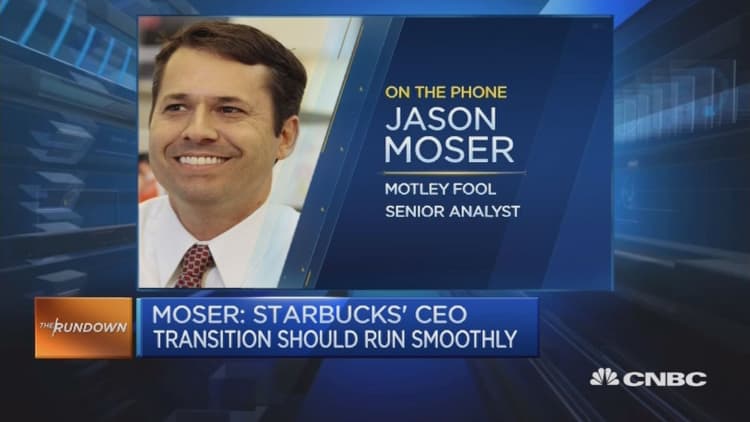Starbucks is offering to foot the bill for critical illness insurance coverage for the parents of some employees in China.
Called the "Starbucks China Parent Care Program," the insurance plan will cover more than 10,000 parents of the coffee giant's Chinese employees, the company said in a press release.
Only the parents of employees who have worked with the company for a minimum of two years qualify for the health insurance program. The policy also stipulates that employees' parents have to be below 75 and live in China in order to qualify for coverage.
Treatment for 30 critical illnesses that afflict the elderly in China will be covered by the policy, Starbucks said.
The insurance provider involved in the initiative is the state-owned China Taiping Insurance, Chinese state media outlet Xinhua reported. Starbucks did not reply to emails sent after office hours by CNBC to verify that information.

The move comes as Starbucks makes the push to double its number of outlets in China by 2021. There are currently more than 2,300 Starbucks stores across the country and shoring up the company's image could give it a boost as competition in the coffee business heats up.
Private sector participation is necessary to strengthen the social security system in China and support the increasing elderly population, Jiang Chongguang, deputy secretary-general of the Insurance Society of China said in a media statement.
The world's second largest economy is still attempting to adapt to an increasingly aging population. A quarter of the country's population will be above 60 years old in 2030, according to government data.
Public health insurance policies in the country currently cover 97 percent of the population, but coverage remains minimal, a 2016 report from EY said. Coupled with the effects of the one-child policy, this results in high levels of out-of-pocket spending and puts a strain on social security and healthcare services in China.
While it is required under China's "Protection of the Rights and Interests of the Elderly" law that family members provide for the financial and medical needs of their parents, enforcement of such laws can be patchy, Caixin reported.

